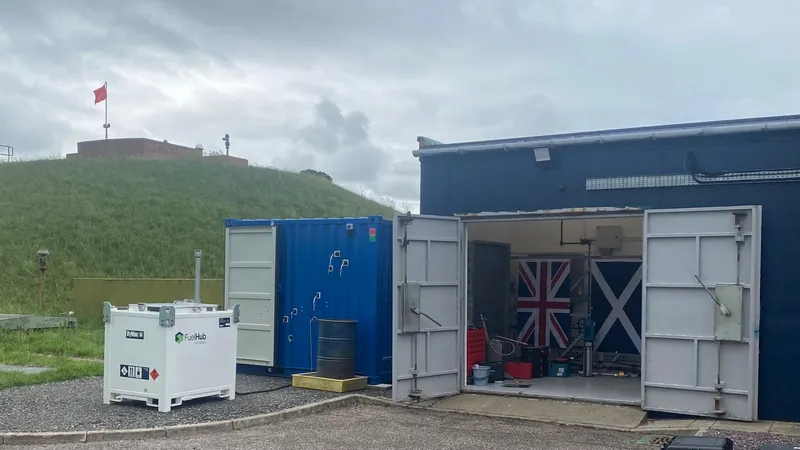
Scotland's Stunning Peninsula Becomes Hub for Revolutionary Rocket Engine Testing
2025-08-06
Author: Daniel
In a picturesque corner of Scotland, the Mull of Kintyre peninsula—forever linked to Paul McCartney’s iconic 1970s song—is now gearing up to transform into a cutting-edge rocket development hub. This shift signals the U.K.’s ambitious plans to become a formidable player in the European space race.
Once a tranquil refuge for the legendary ex-Beatle after the Beatles' split, this stunning peninsula served as the inspiration for McCartney's best-selling hit, capturing the essence of its misty coastlines and rolling hills. Today, that very landscape prepares to witness a new chapter of innovation.
Introducing MachLab, a newly inaugurated rocket-testing facility nestled near the quaint town of Campbeltown. This state-of-the-art lab aims to accelerate the development of revolutionary engines for small rockets, positioning the U.K. as a pivotal gateway to outer space.
Despite setbacks, like the January 2023 failure of an air-launched Virgin Orbit rocket in Cornwall—which ultimately led to the company's demise—a wave of optimism is on the horizon. Companies like homegrown Orbex and Germany's Rocket Factory Augsburg are set to launch vertical rockets from Scotland's SaxaVord site in the Shetland Islands within the next year.
MachLab, established with approximately £500,000 (around $670,000 USD) in funding from the U.K. government and industry, is overseen by the University of Glasgow. Professor Patrick Harkness emphasized its importance in the U.K.'s strategy for vertical launch capabilities. "MachLab is equipped to provide students and researchers with controlled access to hotfire facilities, making significant strides in rocket engine development possible."
The facility is not just a local endeavor; it’s already attracting international attention, with visitors from South Africa and anticipated partnerships from Australia.
Located on the historic grounds of the former RAF Machrahanish airbase, which famously housed U.S. nuclear weapons during the Cold War, MachLab has completed initial hotfire tests of cutting-edge 3D-printed rocket engines featuring advanced cooling systems, supported by the U.K. Space Agency.
The facility boasts versatile equipment capable of testing rocket engines fueled by solid, liquid, and cryogenic propellants. Krzystof Bzdyk, a research associate at the University of Glasgow, expressed enthusiasm about the future: "MachLab has been two years in the making, built from the ground up to operate liquid bipropellant rocket engines. We’re thrilled to contribute to Scotland’s burgeoning rocket research and education landscape."


 Brasil (PT)
Brasil (PT)
 Canada (EN)
Canada (EN)
 Chile (ES)
Chile (ES)
 Česko (CS)
Česko (CS)
 대한민국 (KO)
대한민국 (KO)
 España (ES)
España (ES)
 France (FR)
France (FR)
 Hong Kong (EN)
Hong Kong (EN)
 Italia (IT)
Italia (IT)
 日本 (JA)
日本 (JA)
 Magyarország (HU)
Magyarország (HU)
 Norge (NO)
Norge (NO)
 Polska (PL)
Polska (PL)
 Schweiz (DE)
Schweiz (DE)
 Singapore (EN)
Singapore (EN)
 Sverige (SV)
Sverige (SV)
 Suomi (FI)
Suomi (FI)
 Türkiye (TR)
Türkiye (TR)
 الإمارات العربية المتحدة (AR)
الإمارات العربية المتحدة (AR)